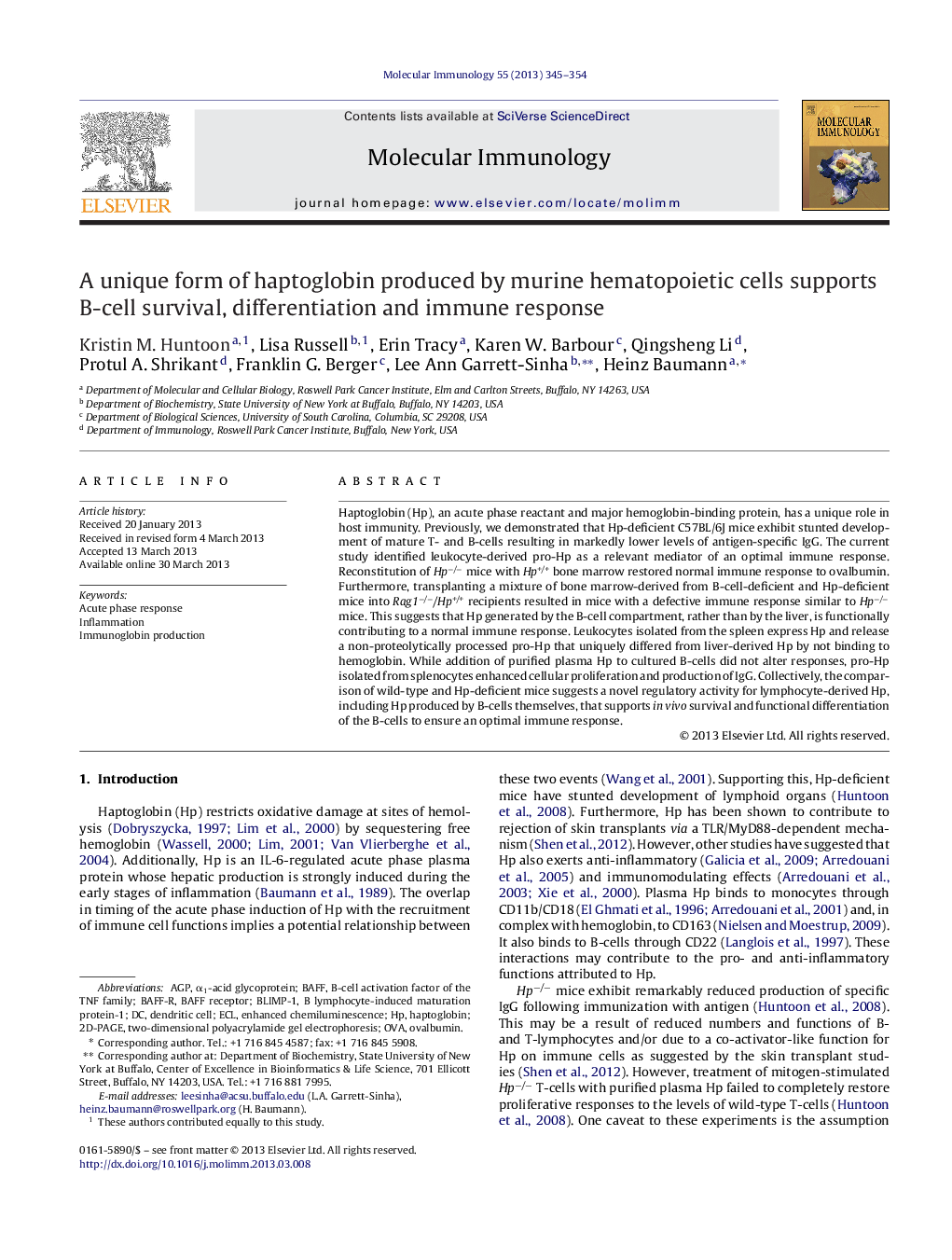| Article ID | Journal | Published Year | Pages | File Type |
|---|---|---|---|---|
| 2830881 | Molecular Immunology | 2013 | 10 Pages |
•A novel form of haptoglobin which does not bind hemoglobin is produced by hematopoietic cells.•Posttranslational modifications distinguish hepatic derived and extrahepatic forms of haptoglobin.•B-cell-derived haptoglobin facilitates proper B-cell function and drives B-cell dependent immune responses.
Haptoglobin (Hp), an acute phase reactant and major hemoglobin-binding protein, has a unique role in host immunity. Previously, we demonstrated that Hp-deficient C57BL/6J mice exhibit stunted development of mature T- and B-cells resulting in markedly lower levels of antigen-specific IgG. The current study identified leukocyte-derived pro-Hp as a relevant mediator of an optimal immune response. Reconstitution of Hp−/− mice with Hp+/+ bone marrow restored normal immune response to ovalbumin. Furthermore, transplanting a mixture of bone marrow-derived from B-cell-deficient and Hp-deficient mice into Rag1−/−/Hp+/+ recipients resulted in mice with a defective immune response similar to Hp−/− mice. This suggests that Hp generated by the B-cell compartment, rather than by the liver, is functionally contributing to a normal immune response. Leukocytes isolated from the spleen express Hp and release a non-proteolytically processed pro-Hp that uniquely differed from liver-derived Hp by not binding to hemoglobin. While addition of purified plasma Hp to cultured B-cells did not alter responses, pro-Hp isolated from splenocytes enhanced cellular proliferation and production of IgG. Collectively, the comparison of wild-type and Hp-deficient mice suggests a novel regulatory activity for lymphocyte-derived Hp, including Hp produced by B-cells themselves, that supports in vivo survival and functional differentiation of the B-cells to ensure an optimal immune response.
